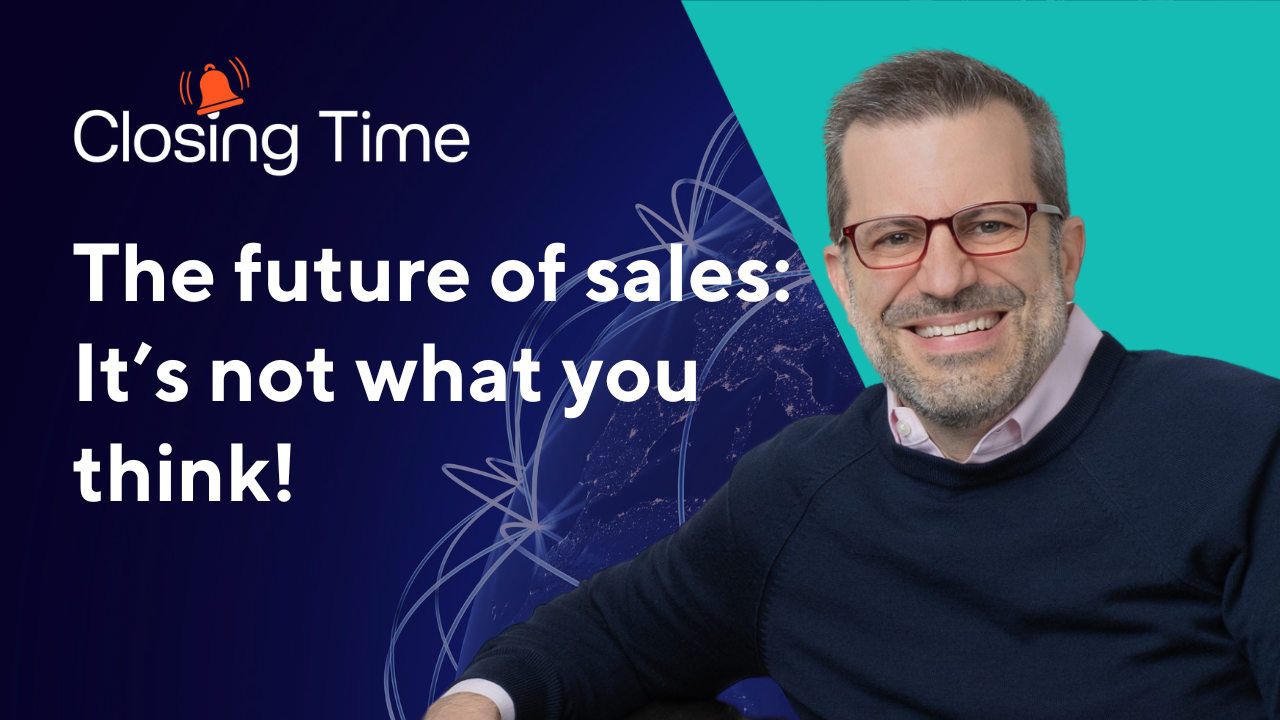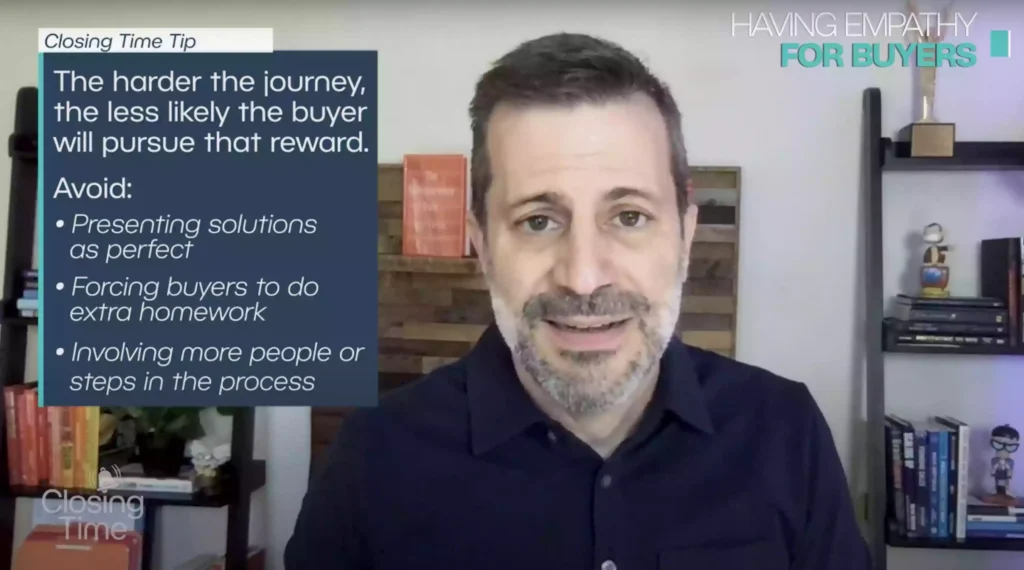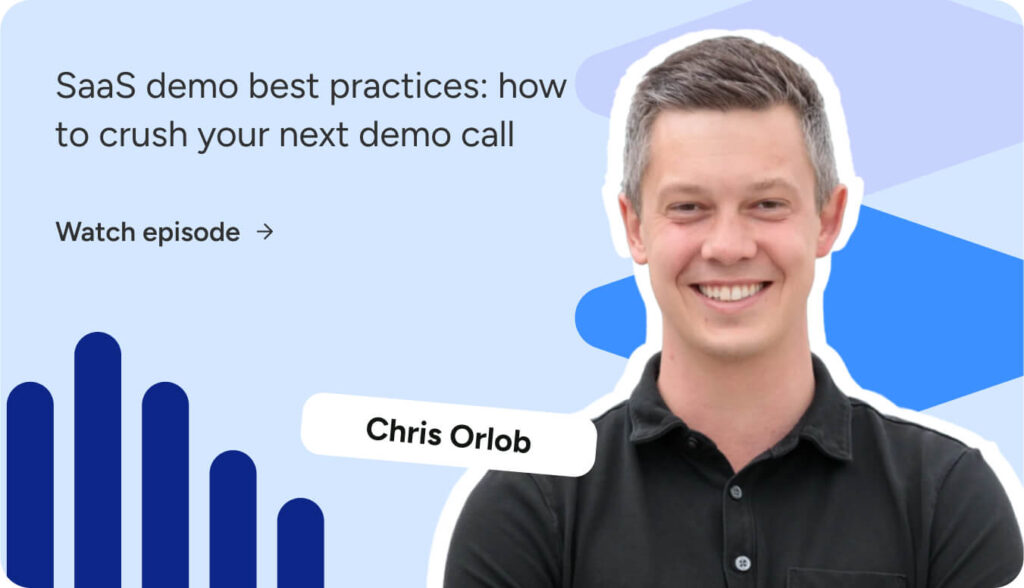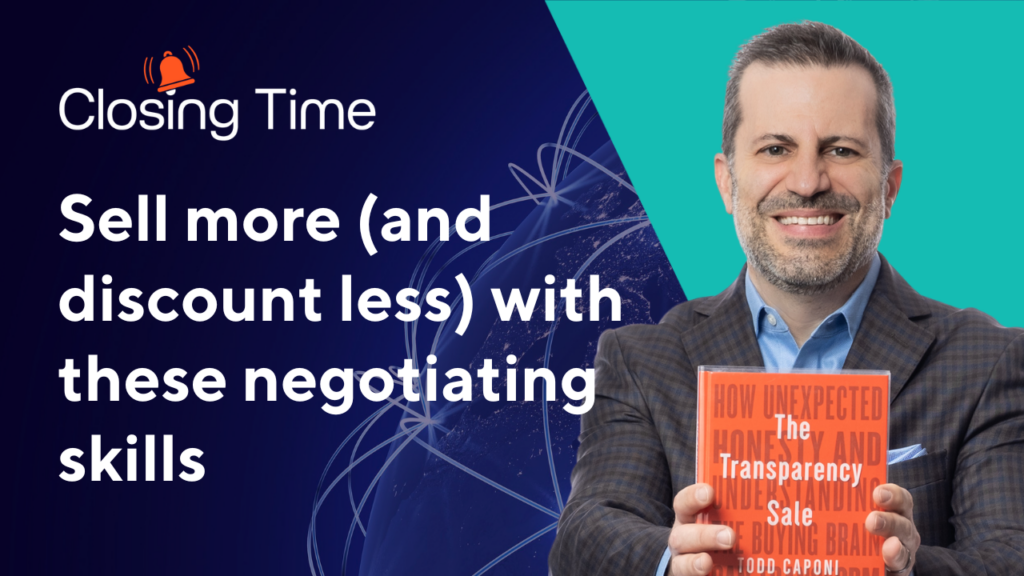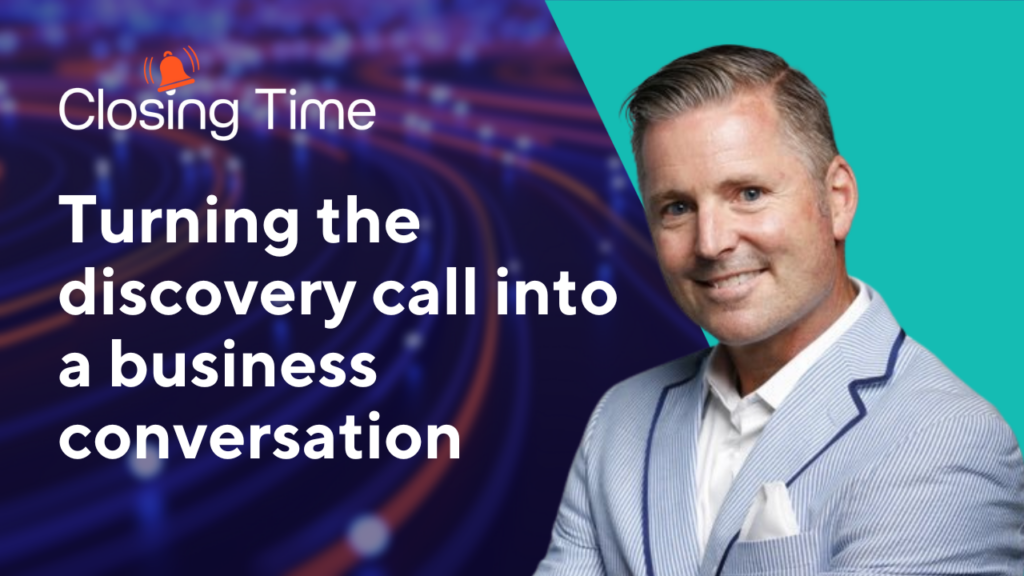Salespeople are obsolete and other crazy myths. The future of selling is not what you think. We’re going to talk it over in today’s episode of Closing Time. Hi, everyone. My name is Chip House. I’m the CMO here at Insightly CRM. And today, I’m joined by Todd Caponi. He’s a former sales leader. He’s an author of the awesome book. The Transparency Sale. And he’s a self-described transparency nerd. Todd, welcome. Thanks for having me.. Can’t wait to dig into this one. So, Todd,. I know you do a lot of work and and research on sales history and how it’s changed over the past hundred years. And so tell me what people were talking about 100 years ago relative to sales and the future is now. Yeah. I mean, it’s amazing that, like, we as a profession tend to step on the same rake over and over again. But you know, this idea that you teed up, which is like, salespeople are going to go away, we’re not going to need them anymore, it cracks me up and here’s why. You know, buyers know more nowadays, right? Well, turns out that quote, buyers know more nowadays. That’s a quote from Thomas. Herbert Russell’s 1912 book called Salesmanship, where back then they were talking about this proliferation of information that was available to buyers, buyers wouldn’t need us as much anymore. That was 1912. Right. And what happened? The profession flourished. You fast forward to 2015, 2015, we had a new proliferation of information and Forrester in their annual report on kind of the state of sales it was April of 2015 for anybody who’s scoring at home had a stat that talked about this idea that 1 million B2B sales jobs would be eliminated by the year 2020. What happened? The opposite happened.. And why does that happen? Like why? Why is it that more information has meant more salespeople not less? And this idea that salespeople are going to be obsolete is crazy. And it’s this idea that more information hasn’t made it easier on buyers, it’s made it harder. Right. Brant Adamson from Gartner recently talked about the fact that there’s nothing harder right now than being a B2B buyer. And I think that creates a tremendous opportunity for us. But again, the point being, more information hasn’t made it easier on buyers it’s made it harder. And that in there lies an opportunity not only for salespeople today, but I think it speaks a lot to what the future of the sales profession holds. It’s super interesting, Todd. I mean, you talk a lot about empathy as a salesperson, right? And just what you said about having empathy for a buyer and how hard their job is. I mean, that’s incredible. Yeah. I mean, there’s something. I think I made up I don’t know if this is official bias, but, you know, what? I made it up. There is this idea which I like to call reward bias. And what it means is that we as human beings, we bias our perception of a reward by the journey to get there. A couple of quick analogies for you. One is like, remember back in high school when your English teacher came into the classroom and was like, hey, everybody, it’s book report time. And you’re just like, oh, man. I don’t know, there might have been people there that were like, Yeah, I’d love to do book reports, but like, I know. I wasn’t one of them. But I remember she comes in with a list of 50 books you could choose from, right? And it was all the classics right? Like Mice and Men and To Kill a Mockingbird and Moby Dick and all that. Well, what did you do? Well, I know what I did, right? I’m trying to get a great grade like I want to get an A, but my path to take to get to that is going to be biased by the journey to get there. So what did I do? Well, first of all, have I read any of these before? Nah, I wasn’t that smart. Number two is, has there been a movie made about any of these, right? Like, maybe I could just watch the movie that would help. Then I’d narrow it down. There were a few. And then like, there used to be CliffsNotes, right? Which are the little yellow and black booklets that were summaries.. Like, are there CliffNotes on any of these? And then I’d read the inside cover and I’d be like,. Hey, this at least seems interesting. And then I would make a decision based on that. You know, your buyers do that to. Your buyers at any time, they’ve got a hundred problems that they could go try to solve, but they only have the bandwidth to maybe do four or five. And if your buyers are human beings, which I would guess they are, they bias their decision on which path and which reward to go after based on the journey. Now, what that means is that your buyers are doing this all the time. Oftentimes when we walk into a situation, we’re making it hard on the buyers because we’re presenting our solutions as perfect and forcing them to do more homework, or we’re trying to get more people involved and they lose their control, or there’s tons of steps they’re going to have to go through. Then all of a sudden they go silent on you and you’re sitting there going, Gosh, what a time waster. What’s wrong with them? It’s probably you, right? It’s time to look in the mirror and realize that the journey that you’re taking this buyer on maybe isn’t aligned to what their expectations were. And as a result, they’ve decided to go,. Hey, you know what? I know there’s a huge ROI here. But there’s a pretty good ROI there, and it’s easier. I’m just going to go focus on that. That is a lot to do with this idea of more information hasn’t made it easier on buyers. It’s made it harder. And that, again,. I believe there’s an opportunity for us to bring both the pros and the cons to buyers, do the homework for them. Be the easy journey, right? Be the CliffsNotes or the movie made about the book so that you’re helping them reach that reward a lot faster. And the minute you do that, you differentiate in the way you sell. And that reward still looks pretty sweet. That’s cool. Yeah. So when buyers have more information, does it become paralysis of choice, and how does that impact the make up of your sales org? Oh, yeah, absolutely. You know, we see it in kids right? You know, a few years ago, remember growing up, Toys “R” Us was like the greatest place in the world to go to. But a couple of years ago, they filed bankruptcy, and the one that was close to our house was doing a like, you know, massive sale. Stores closing, 30% off. And so, like, my wife and I, we’re out and we’re like, hey, why don’t we go to Toys “R” US and see, like, see what’s up. Maybe get a good deal. And the kids are like, yeah! They get so fired up. Fast forward to 20 minutes later. The kids each have a toy on their lap and they’re both crying. The why. Right. And it’s this idea of choice paralysis and not feeling good about the decisions you make. We walk in, floor to ceiling toys everywhere. And my son, this was, you know, a couple of years ago. So my kids are a little younger, but they’re like, I want that,. I want that, I want that. And like, you got to choose one. And they couldn’t. They pick one thing and then they go down an isle and they’re like, nope. I want to put that back. And it got to the point where we could have been there for days. And my wife is finally like, listen, you liked these three things. Choose one. And they finally did. But when they left the store, they felt like they hadn’t made the best decision that was sitting in there for them. That’s kids. But at another level, we do that as human being too, right? That when throw all the cards on the table for the customer and just go, Hey, you tell me, right? We’re not being helpful to a buyer. And actually, it’s the opposite. We’re making the home work harder on them. We’re making the journey harder than them. The analogy that I always like to make is to think of yourself almost like a Sherpa, right? Like your sales Sherpa, that if you’re climbing Mount Everest and you went to the Sherpa and the Sherpas, like, it’s a big mountain, how do you guys want to go? Like you tell me, you’d probably be like,. We’re all going to die, right? A good Sherpa is going to go,. Hey, listen, based on what I see, what you’ve got in the equipment, we’re going to go down this path or we’re going to go stop at this place. And you’re like, Cool, I’ve got confidence and I know I’m doing this the right way. That’s your job as a salesperson, too. It makes perfect sense. You know, as a consumer,. I know buying a TV is hard, right? I mean, because it’s such a big investment or buying a car is hard. You have to talk to a lot of people. You do your own research, and a B2B buyer has the same sort of stresses right that they’re dealing with. And I know because you’re a bit of a nerd, Todd. So I know that you love data and I know that, you know, in other companies when we dug into why aren’t people buying, one of the top reasons is no decision, right? It’s not that they went off with a competitor, right? It’s that paralysis of choice led them to a place that made them, you know, we’ll think about it. So what do you think about that in the future of selling? Well, yeah. I mean, let’s talk about the TV example to start with. This idea that, you know, back in 1995 there was this company that you may have heard of. It’s called Amazon. Like Amazon, they’ve done pretty well, right? They were the first ones to embrace this idea of putting negative reviews right under the products that they’re selling right on the website. And what happened? Somebody would buy a product, they’d come back and say, this product sucks, but suddenly they were selling more, right? Why does that happen? Well, it happens because we subconsciously know that perfection doesn’t exist and we are able to reach a prediction of what our experience is going to be like a lot faster if we can weigh both the pros and the cons together. So when you’re buying a TV, I’m willing to bet you read reviews and I’m willing to bet you probably read the negative reviews first. That’s what we do as human beings. And that has made e-commerce flourish because now the information is all there, right? No salesperson involved, but they are able to make a really, really good prediction. Now we take that to the B2B world, again think that that’s a tremendous opportunity for salespeople to differentiate by doing that homework for the buyer, by calling all that information together for them coming through the lens of, hey, listen, I work with lots of buyers like you and lots of companies like you. Here’s what you’re going to like. Here’s what you’re not going to like. Here’s the information that’s really, really important. But make sure that it comes through that lens of not being all you’re the greatest, right? Because they know subconsciously that that’s not true. Take that bias away and truly be a partner and a Sherpa to that buyer and help them make the right decision for them by doing the homework for them. And again, that involves both the pros and the cons. Yeah, that’s so true. I mean, we feel that as buyers when we’re consumers, right? And so if you’re a salesperson and you haven’t been a buyer in a B2B scenario, you can kind of channel some of your anxiety that you feel buying things like TVs or cars. So Todd, you know, a hundred years from now, we’re not going to be around right. And so you can be very wrong with your answer here. But what is the future of sales? What is it going to look like? Well, I’ve personally believe that there’s just going to be more and more of a proliferation of information. Right. It’s just going to be easier. You know, it’s funny to me that so many of the things that we’ve done throughout history haven’t actually made it easier on buyers. A lot of the focus has always been making it easier on sellers. And I think that that’s probably going to fade away a little bit. But I truly believe that, especially when we’ve gone down this path of everything being as a service right you know, software as a service is really the way that so many organizations are structuring, the way that they go to market, where the relationship is where the profitability comes.. It’s not that one deal that the future of sales is, again, not about convincing. It’s about helping the buyer predict and doing the homework for them and becoming an asset to them and making great decisions versus a necessary evil the way it’s been the last ten or 15 years. Right. And so I just think that that continues to progress, that you know, one of the things that as somebody who’s got a real passion for this profession, clearly right I’m a nerd to the highest level in terms of the sales profession. It just pains me to think about this idea that every year Gallup comes out with their list of most to least trusted professions. They’re at the bottom hanging out with the politicians are salespeople right? Like I think there’s a huge opportunity for us to start to build momentum back in the trust that we build with customers by realizing that it is not our job to convince people it is our job to help them make really good decisions and reach optimal outcomes for them as quickly as possible. And again, stop with this lens that it’s got to be me, because even if it’s for a competitor, you’ve built a relationship. And that relationship feeds itself back many times over, especially throughout your career. We’ve got to start thinking about sales in the long game instead of the quarter by quarter. Well, you heard it here first, folks. Todd, thanks for joining.. Thanks for having me. Of course, and thanks to all of you for watching today’s episode of Closing Time, the show for go-to-market leaders. And if you’re on YouTube, make sure you hit subscribe and tick the bell if you want to get the notification so you don’t miss any episodes. We’ll want to see you next time. Thanks again.

